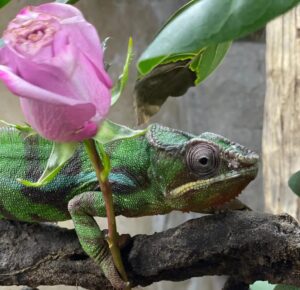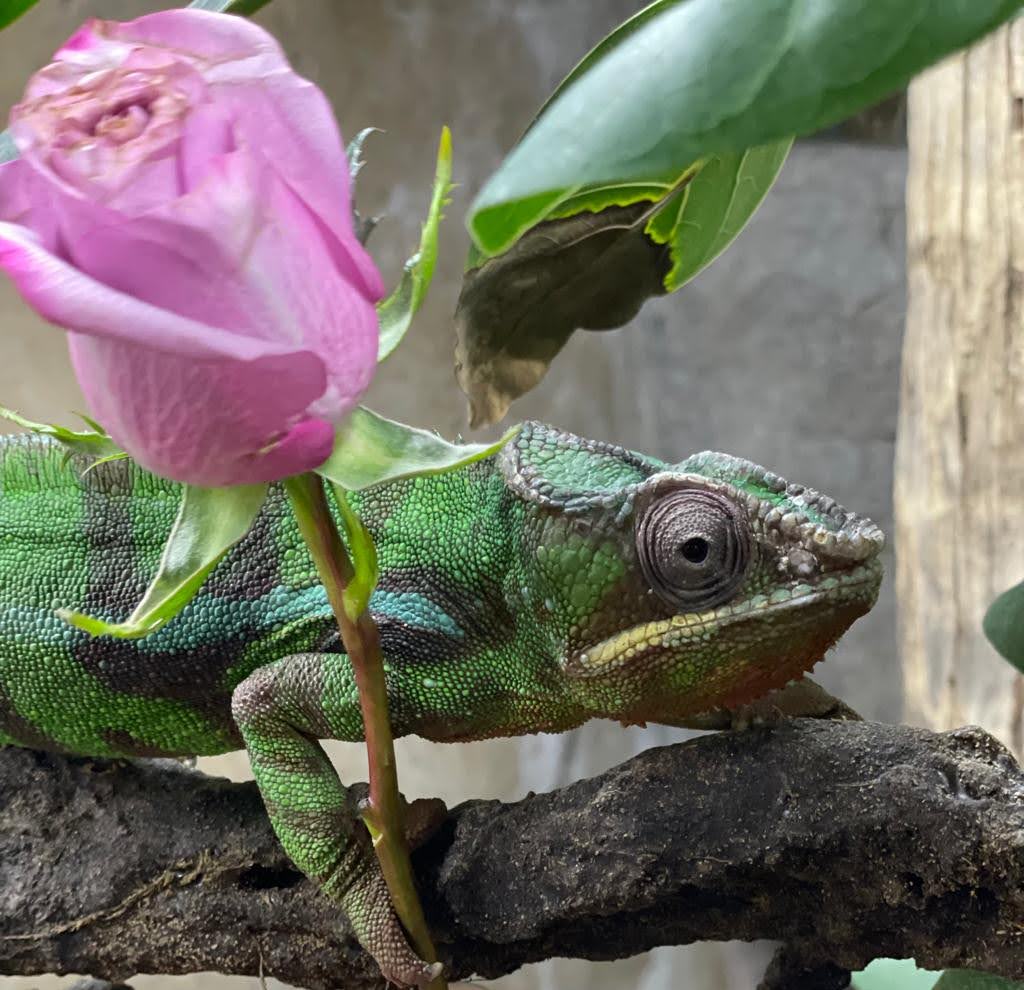An Exciting Otter Pup-date
We’re thrilled to share some otter-ly exciting news—our North American river otter bevy has grown! On March 11th, 8-year-old North American river otter, ‘Kate’, welcomed a litter of two pups. This is…
Read MorePolar bear ‘Siku’ will not be viewable in the main habitat from Monday, April 28th to Friday, May 2nd to accommodate habitat maintenance. However, you might still catch a glimpse of him in his outdoor courtyard—just take a look through the amphitheatre viewing window! Thank you for your understanding.
Land of Lemurs Walkthrough & the outdoor Gorilla Amphitheatre are closed for the season. Lemurs and gorillas are viewable in their indoor habitats.
Bite-Sized
It’s with heavy hearts that we share the passing of one of the zoo’s most colourful residents – male panther chameleon ‘Neo’.
Last month we shared that Neo had been receiving medications and laser therapy for arthritis and muscle weakness that was affecting his grip strength. Chameleons are usually expert climbers, but due to his weakness Neo’s care team implemented modifications to his habitat to help him more easily navigate his surroundings, including a multi-level structure with interconnected branches, palm fronds, and other items to give him more options. Unfortunately, his strength and health continued to decline, and it became unsafe for him to remain in his habitat even with all of the modifications. Based on his declining health and welfare, the compassionate decision was made to euthanize him.
While wild panther chameleons only live 2-3 years, the maximal life expectancy for panther chameleons under human care is approximately 5.2 years. At over 5 years old, Neo was considered geriatric for his species. He hatched on Christmas Day in 2017 and joined the Wilder Institute/Calgary Zoo family shortly after in 2018. Neo gained a new habitat mate last year – one-year-old female ‘Makira’.
Whether it’s through specialized treatments, dietary adjustments, or innovative habitat designs, the Animal Care, Health & Welfare team, supported by teams across the zoo, provides the best possible care through every stage of life for the species that call the zoo home. Neo’s age and the quality of care he received throughout his time with us are a testament to this. Please keep his care team in your thoughts during this difficult time.

Panther chameleon, ‘Neo’
